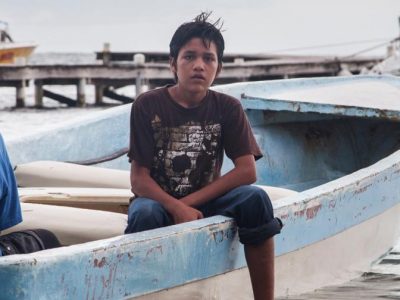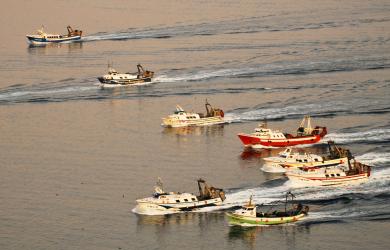SEAFOOD FRAUD: STOPPING BAIT AND SWITCH
Seafood fraud is the practice of misleading consumers about their seafood in order to increase profits.
Illegal Fishing: Seafood Fraud
Seafood is a popular food internationally, yet consumers are routinely given little or no information about the seafood they eat. The information they are given can be misleading which impacts consumers, public health, fishermen, honest seafood businesses and the oceans. Oceana is working to require traceability for all seafood which will help to prevent seafood mislabeling and keep illegally caught fish out of the international market while providing more information to consumers about their seafood purchases.
Seafood is a global commodity traded all over the world, following a long, complex and non-transparent supply chain. It also serves as an important source of protein for millions of people every day. However, seafood fraud and species substitutions occur regularly, cheating consumers out of what they ordered and putting public health and the oceans at risk. In addition, seafood fraud allows illegally caught fish to be laundered into the legal seafood trade.
Seafood fraud is a global problem: It has been studied and found all over the world. Oceana is leading the way by exposing seafood fraud through extensive DNA testing and in campaigning for policy change that would put in place traceability requirements that would result in fish being tracked from boat to plate in order to bring transparency to the seafood supply chain, help prevent seafood mislabeling and fraud and stamp out markets for illegally fished products.
Click here to learn more about Oceana’s latest report, One Name, One Fish: Why Seafood Names Matter.
What Oceana Does
EXPOSING THE EXTENT OF SEAFOOD FRAUD
Oceana has been a leader in exposing seafood fraud. In the United States, Oceana conducted a number of studies to determine the extent of seafood fraud. Our 2013 national seafood fraud report was one of the largest investigations in the world to date, collecting more than 1,200 seafood samples from 674 retail outlets in 21 states to determine if they were honestly labeled. DNA testing found that one-third (33 percent) of the 1,215 samples analyzed nationwide were mislabeled, according to U.S. Food and Drug Administration (FDA) guidelines. Our most recent effort revealed a bait and switch of America’s favorite seafood—shrimp. In the report, Oceana found 30 percent of shrimp samples to be misrepresented. Oceana has also conducted similar seafood fraud studies in Europe. In addition to testing seafood, Oceana compiled the most current and comprehensive review of seafood fraud literature to date which examined more than 100 studies from around the world. Oceana’s research has generated widespread media coverage and has supported its policy work. Most recently, Oceana’s successful campaigning helped to convince President Obama to establish a task force charged with developing recommendations, including domestic and international measures, to stop seafood fraud and end illegal, unregulated and unreported fishing.
ADVOCATING FOR TRACEABILITY
In order to ensure that all seafood sold is safe, legally caught and honestly labeled, Oceana campaigns for more transparency and accountability in the seafood supply chain, including full chain traceability. The information that the fishermen provide when they land the fish, like where, when and how it was caught, needs to follow that fish from boat to plate. This ensures that information is available to verify legality and identity of seafood in the supply chain, with some of that information available to the consumers so they can make informed decisions about the seafood they purchase to feed their families.



